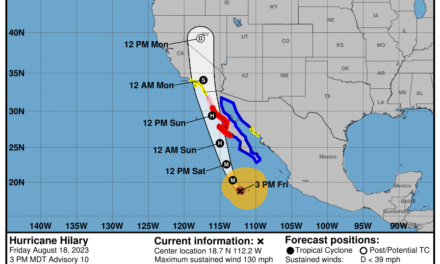
SAN FRANCISCO–Homeland Security Investigations (HSI) agents conducted a community outreach operation at the San Francisco International Airport to educate some and remind other travelers about female genital mutilation and the agency’s commitment to help the U.S. Government to end this practice.
“This is a global human rights issue, which calls for a global response,” Ryan Spradlin, Special Agent in Charge, Homeland Security Investigations (San Francisco and Northern California). “We all must do our part to protect female children and women from becoming victims of female genital mutilation, which forces them to live with physical and mental scares and a lifetime filled with pain.”
FGM, also known as female circumcision, is a federal crime in the U.S. and is defined as the harmful practice of cutting female genitalia for a non-medial purpose. Though a cultural practice performed in about 29 countries—predominantly in Africa, Asia, and the Middle East—FGM is considered by the U.S. Government to be a severe form of child abuse when performed on female children and human rights abuse when force upon female adults.
One question HSI agents asked SFO international travelers yesterday was “did you know that FGM is illegal”?
“Yes! I am glad it is, because this is heinous,” responded a woman traveling to Amsterdam.
This FGM outreach was implemented by HSI agents located in the Bay Area with the assistance of Customs and Border Protection officers at the airport. This is a part of a nationwide HSI effort, educating individuals and families about FGM while seeking to identify and help victims and arrest perpetrators of this crime.
“I am glad it’s illegal. Anything against one’s will should be illegal,” said a male traveler heading to Frankfurt, Germany.
In 2016, the Center for Disease Control reported that approximately 513,000 female children and women who are at risk or have been subjected to FGM in the U.S.
“HSI is dedicated to working with communities, survivors, medical professionals, child protective services, and our law enforcement partners to end the practice of FGM,” Spradlin said.
San Francisco HSI agents talked to San Francisco travelers about various signs, if observed, may identify a female child possibly at risk of FGM. Some of these signs include:
- A female child who is from a family or a community that practices FGM
- A female child under the age of 15
- A female child whose mother, female relatives, or older sister(s) have undergone FGM
- A female child who mentions a “special girls’ trip” or coming of age celebration
- A female child whose parents or relative(s) plan to take her to a country where FGM is prevalent, particularly during a holiday or school break
If you or someone you know is in danger of being subjected to FGM, call the HSI TIP LINE at 1-866-347-2423 or send an e-mail to HRV.ICE@ice.dhs.gov.
For more information about FGM, visit: uscis.gov/fgmc




